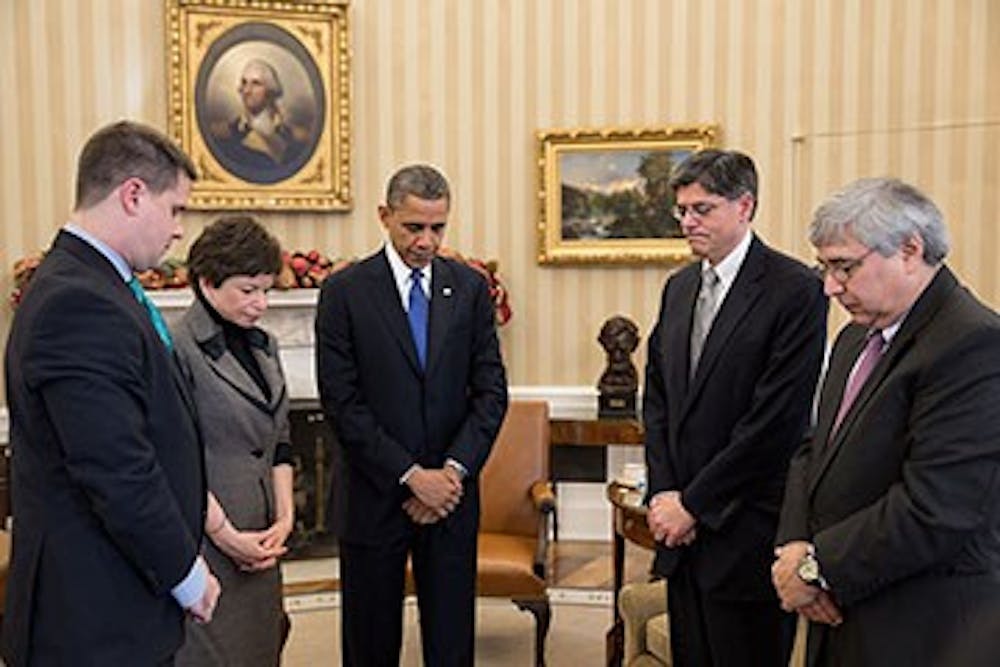President Barack Obama told the nation that the Umpqua Community College massacre in Oregon should be politicized for the benefit of American society, while admitting there is little he can do as president to prevent such shootings in the future.
“And, of course, what’s routine is that somebody, somewhere will comment and say, ‘Obama politicized this issue,’” Obama said at a White House press conference last Thursday, according to The Washington Post.
“Well, this is something we should politicize. It is relevant to our common life together, to the body politic.”
Obama went on to challenge journalists to report, side-by-side, the number of U.S. citizens who have been killed through terrorist attacks in the past decade compared to citizens killed by gun violence.
As the time Obama has in office is coming to an end, he acts as if he cares less and less about following safe public relations advice — his speeches are increasingly bold and his calls to action more direct.
The shooting in Oregon, which claimed the lives of 10 people and injured at least nine more, was a final straw for the president, who campaigned on gun law reform since his 2008 bid for presidency.
“Routine” is the word he used to describe the attitude Americans are taking when another mass shooting occurs. That attitude is exactly what the president finds unacceptable when gun laws can be transformed to attempt to prevent massacres.
“This is a political choice that we make to allow this to happen every few months in America,” Obama said. “Each time this happens I am going to say that we can actually do something about it, but we’re going to have to change our laws.”
Obama recognizes the majority of gun owners are responsible and that the Second Amendment ensures an American’s right to own firearms, but he also believes there are “common-sense steps” the nation can take to protect its citizens. The White House website outlines those stances and more, including specific actions the Obama administration wants to pursue.
On the top of the list is to require background checks for every firearm buyer, not just those purchasing a gun from a federally licensed firearm. Another approach to provide better coverage of mental health treatment, particularly for younger Americans.
With a divided Congress and a divided American populace, it is difficult to make changes to gun laws. One side of the aisle will protect the Second Amendment strictly, often claiming that passing gun reform laws would be carving away a basic American right. The other side sees the ambiguous language of the law as outdated and allowing citizens with an absurd amount of power to acquire dangerous weapons.
“I’ve got to have a Congress and I’ve got to have state legislatures and governors who are willing to work with me on this,” Obama said.
Gun violence extends beyond domestic shootings, which have occurred at schools, theaters and public events. The drug war on the U.S.-Mexican border is a violent conflict fueled largely by American dollars and American firearms.
Drugs, including cocaine and marijuana, are produced in the Central and South American countries before they are smuggled north to cartels on the southern U.S. border. Cartels demand a high quantity of firearms to maintain their war against each other and the Mexican government. Drugs are sold in the U.S. and loose gun laws allow the cartels to buy and smuggle weapons back across the border.
Whether it is U.S. citizens or Mexican drug cartels that use American guns for violence, the debate on gun reform has boiled down to a freedom versus security argument. But why do Americans have to struggle to create a balance between the two ideals?
In a utopian America there would be no reason to sacrifice freedom or security because you would have a populace that is both responsible for their firearms and able to trust their fellow neighbor to do no harm. But in reality, society must adapt and transform to prevent people from even wanting to kill other people.
Until then, the debate on gun rights will carry on slowly and painfully.




The Slate welcomes thoughtful discussion on all of our stories, but please keep comments civil and on-topic. Read our full guidelines here.